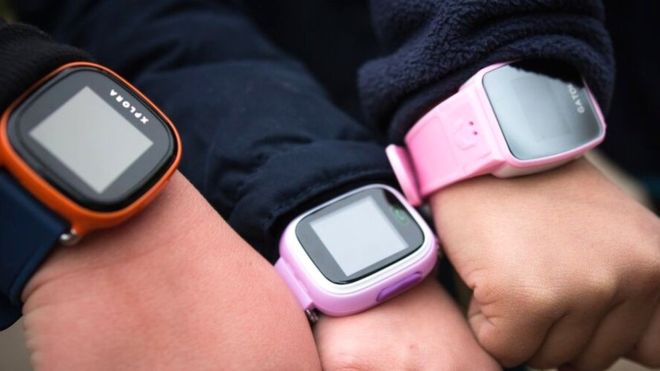Recently news spanned around that a German regulator authority has banned the sale of smart watches for children, marking them as spying devices.
Previously it had banned an internet-connected doll named as My Friend Cayla, for same target market and obviously for the similar reasons.
The Federal Network Agency, Telecoms regulator recommended parents to tear down such watches who had them.
According to some experts this verdict could be a “game-changer” for internet-connected devices.
A security expert at Pen Test Partners, Ken Munro said,
“Poorly secured smart devices often allow for privacy invasion. That is really concerning when it comes to kids’ GPS tracking watches – the very watches that are supposed to help keep them safe”.
“There is a shocking lack of regulation of the ‘internet of things’, which allows lax manufacturers to sell us dangerously insecure smart products.
“Using privacy regulation to ban such devices is a game-changer, stopping these manufacturers playing fast and loose with our kids’ security,” he added.
In a declaration, the agency alleged it had previously taken action in opposition to numerous firms offering such watches on the internet.
Jochen Homann, president of the Federal Network Agency said,
“Via an app, parents can use such children’s watches to listen unnoticed to the child’s environment and they are to be regarded as an unauthorized transmitting system”.
The organization also requested schools to “pay more attention” to such watches among their students.
Tracking system of children
These kind of smart watches which are equipped with a Sim card and a limited telephony role and are set up and controlled via an app.These are sold in a large quantity in Germany.
The target market is usually aimed at children between the ages of 5 and 12.
A report from the Norwegian Consumer Council (NCC) in October claimed that ‘some children’s watches including Gator and GPS for kids had flaws such as broadcasting and stocking up data with no encryption.
In simpler words, strangers can use basic hacking techniques to track children as they moved. And it can also make a child appear to be in a totally different location.
Though, it is not obvious whether the German resolution to ban such devices was due to the privacy issues associated with them or wider security faults and bugs that have been exposed by NCC and others.
However, both firms claimed that they had set on the security issues.
The head of digital policy at the NCC, Finn Myrstad said:
“This ban sends a strong signal to makers of products aimed at children that they need to be safer.”




